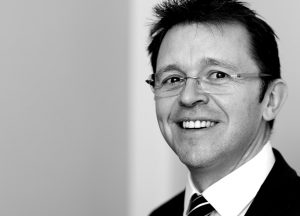Case Preview: XX v Whittington Hospital NHS Trust
16 Monday Dec 2019
Jonathan Glasson QC Case Previews
Share it
Will Lady Hale change her mind, 17 years on?
On 16 and 17 December 2019 a panel presided over by Lady Hale will decide whether or not the Court of Appeal were correct last year in not following an earlier judgment of Lady Hale in a 2002 case concerning recovery of damages for the costs of surrogacy. The case has attracted significant publicity: see The Guardian and The Independent.
The Facts
As a consequence of the admitted negligence of the Whittington Hospital in failing to detect signs of cancer, Ms X developed cancer of the cervix for which she required chemoradiotherapy treatment that led to infertility. Ms X decided to have their own biological children by surrogacy. The experts for the parties agreed that on the balance of probabilities Ms X will achieve two live births from her 12 cryopreserved eggs. If her cryopreserved eggs do not result in 3-4 children, she intends to use donor eggs. Her first choice of surrogacy is California, primarily because surrogacy is lawful and binding there. She claimed damages in respect of the expenses of four pregnancies either in California or the UK using her own eggs and, if necessary, donor eggs.
In the High Court, Sir Robert Nelson concluded that the claim for California surrogacy expenses had to fail because he was bound by Briody v St Helens and Knowsley Area Health Authority [2001] EWCA Civ 1010, [2002] QB 856 on this issue. He viewed the claim relating to the UK surrogacy to be different as it is not illegal nor contrary to public policy to use an agency to find a surrogate mother. However, he drew a distinction between the use of a mother’s own eggs, which was capable of attracting an award, and the use of donor eggs, which was not. He therefore limited the claim to the cost of two surrogacies in the UK, using Ms X’s own eggs.
The Court of Appeal (McCombe, King and Nicola Davies LJJ) allowed the appeal: see [2018] EWCA Civ 2832. The Court of Appeal rejected the Hospital’s arguments, relying on Briody, that the costs of surrogacy by “donor eggs” were irrecoverable. In Briody, Hale LJ robustly rejected the claimant’s arguments that those expenses were recoverable at [25]:
“This proposal is not in any sense restorative of Ms Briody’s position before she was so grievously injured. It is seeking to make up for some of what she has lost by giving her something different. Neither the child nor the pregnancy would be hers. It is significant that Ms Briody and her first husband tried to make good their loss by adoption, but by then the supply of babies for adoption was beginning to dry up and they turned to fostering instead. These days, some childless couples with the resources to do so become parents by inter-country adoption. The expenses of travelling to the foreign country, staying there, dealing with the various intermediaries and formalities, can be very heavy. But, so far as I am aware, no one who has been wrongfully deprived of the possibility of having a child of their own has sought to claim these. I cannot think that any court would consider it reasonable to expect a defendant to pay them.”
McCombe LJ declined to follow that approach, at [94] he said:
“The distinction between “own egg” surrogacy and “donor egg” surrogacy, employing the partner’s sperm, would be entirely artificial. Having regard to the development of social attitudes, I feel able (with the very greatest respect to Hale LJ’s view of 17 years ago) not to follow the dicta in Briody on this point.”
King LJ agreed with McCombe LJ on that point and noted at [101]:
“It is unnecessary to resort to statistics or research in order to appreciate the social changes in the years since Briody. These changes have led to the current acceptance of an infinite variety of forms of family life of *135 which single sex, single person and so called “blended families” are but examples. The creation of these families is often facilitated consequent upon the advances in fertility treatment including the acceptance of and increased use of donor eggs.”
The Hospital’s appeal is due to last two days and will be heard on 16 and 17 December 2019.


